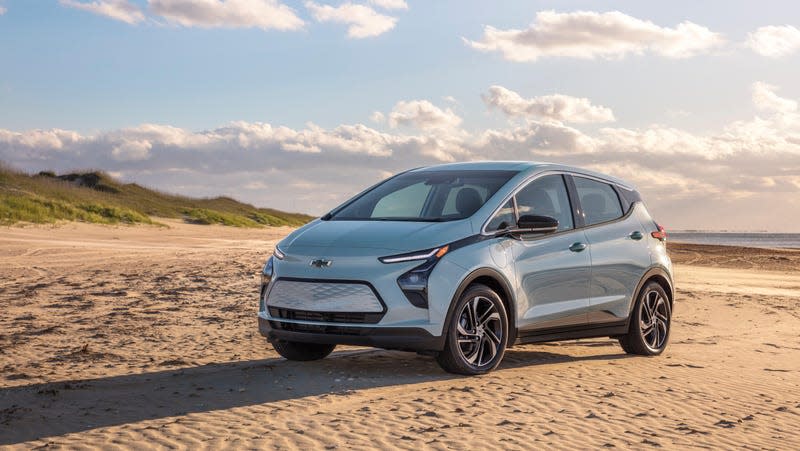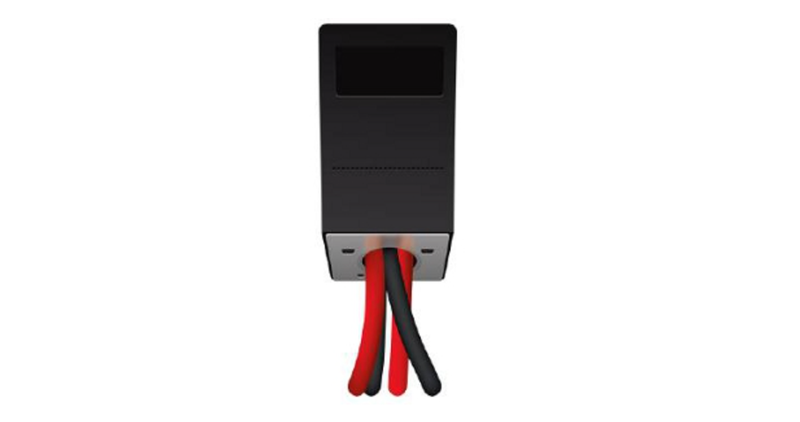A Convicted Felon Convinced Washington DC He Made A 'Fuel Shark' For EVs

Do Washington D.C. city officials not read Jalopnik? If they did, they probably wouldn’t have entered into a contract with a particular gentleman we’ve written about before. DC’s WUSA reports that Lawrence Hardge — a man who isn’t me— has managed to secure a contract with the city’s public works department where he would provide them with a purported “EV range extender” for DC’s fleet of Chevy Bolts. Or: the Fuel Shark, but for electric vehicles.
For those of you just tuning in, Lawrence Hardge is one part of a larger EV startup called Mullen Automotive. He’s also someone that I’ve been repeatedly mistaken for in recent months, resulting in weird Facebook messages and friend requests from people all across the world.
Read more

Hardge says he’s an inventor. Aside from a fire extinguisher, his main claim to fame is being founder and CEO of a company called Global EV Technology and inventing what he calls Ever-Charge Technology. This device is claimed to extend the range of any EV battery by “rejuvenating” it. This “rejuvenation” is achieved by… who knows. But Washington DC’s Department of Public Works thought the idea sounded legitimate and entered into a contract with Hardge earlier this year.
WUSA managed to find a deleted video post from Hardge in late April showing him in the garages of the DC public works. DC officials wanted Hardge’s devices installed on parking enforcement vehicles: Chevy Bolts. From WUSA:
DC government awarded a contract in February with Hardge’s company. The contract says it will cost $14,000 per vehicle to install his modules and $3,000 per vehicle for “data monitoring.” That’s a total of $680,000 taxpayer dollars to refit 40 D.C. parking enforcement cars. The contract also gives Hardge’s company exclusive space in D.C.’s maintenance bays.
WUSA took Hardge’s claims about his range-extending device to the University of Maryland’s electrical engineering labs, who debunked them; the device couldn’t actually extend range. WUSA asked GM if it was aware of the claims Hardge was making about extending the Bolt’s range; the company said it wasn’t aware and isn’t taking part in it.
A spokesperson for the public works department told WUSA that they only became aware of Hardge, his company and tech after he did a presentation last year.
“We learned about the EV Technologies modules when the company made a presentation during the 2022 Washington Auto Show,” the spokesperson said. City officials also weren’t aware that Hardge is a convicted felon, something that they say they’ll now be looking into.
Court documents show Hardge was sentenced to 26 years in prison for a felony conviction in 2001. He was found guilty of selling unregistered securities from his home state of Mississippi. Hardge served five years in prison and tried to expunge, or wipe, his criminal record in 2021. A Mississippi judge rescinded Hardge’s temporary felony expungement in March 2022, after a judge’s order shows allegations surfaced that Hardge used business investor’s money to repay the people he defrauded in 2001.
WUSA9 asked the D.C. government whether it knew that Mississippi court records consider Hardge a convicted felon before it signed a contract with him.
A spokesperson with DC Office of Contracts and Procurement responded that the department wasn’t aware of that until the day WUSA9 informed them and that it is “actively investigating the situation.
As for Hardge, he issued a statement when asked if he could show and explain how his device worked, claiming he’s “under a strict non-disclosure agreement. I can’t discuss anything regarding D.C.”
More from Jalopnik
Sign up for Jalopnik's Newsletter. For the latest news, Facebook, Twitter and Instagram.

 Yahoo Autos
Yahoo Autos 